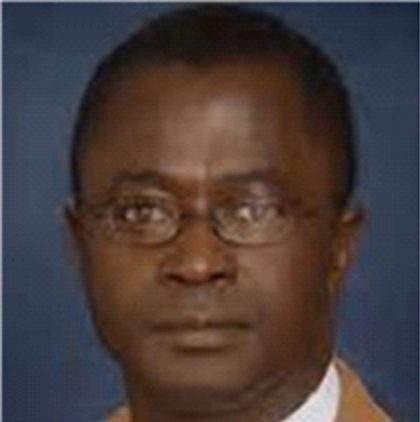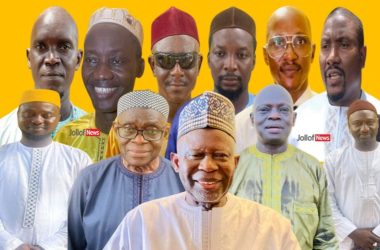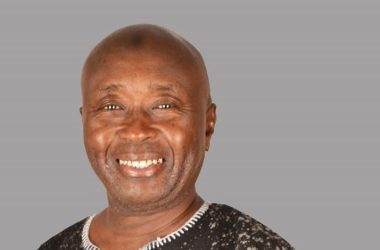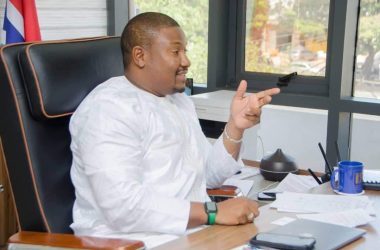
In 2021, we saw in the Gambia that democracy often yields outcomes that bona fide opposition parties would not have wanted, but given our electoral laws we have to respect it as the will of the voters.
I wish the Barrow government well, hoping that the clumsiness, malfeasance, and poor governance that continue to characterise it will be issues of the past and that it will seek to recalibrate its priorities and efforts towards addressing the legitimate aspirations of the people of The Gambia.
I hope that the government will work with renewed and an urgent sense of purpose towards freedom from hunger, disease and deprivation, seek to desist from and fight corruption, improve and elevate the educational standards, and seek to fulfil the numerous promises it made to the electorate.
On the other hand, we must remain vigilant to ensure that the past does not repeat itself through deliberate attempts by an inept government to misuse and or abuse power. We must remain responsive to the need for government to address our interests, irrespective of our geographical location, tribe, ethnicity, religion, gender, sexual orientation, education or ability.
I maintain the view that the people of the Gambia deserve better than what is obtained at present. We deserve a responsible, mature, inspirational and effective leader and leadership team.
Our country deserves a government that will be unbiased as it works to strengthen and build institutions based on the principles and core values that will outlive personalities, religious, ethnic, and geographical affiliations, with the sole objective of addressing the rights of the people of The Gambia.
In 2021, we observed how the opposition parties could not agree to come together and form a grand coalition/alliance/partnership based on what is common between them with the aim of bringing back the Change the people voted for in 2016. With the elections behind us, some analysts provided a useful diagnosis of the reasons for the electoral defeat of the main opposition party and its partners.
I wonder how damaging the views of the analysts would have been to the opposition if they had expressed them prior to the elections. Anyhow, as we approach the national assembly and local government elections, there seems to be much to learnt from the views expressed by the analysts. Time will tell if lessons have been learnt.
It could be said that most observers probably realise that if we want to tilt the politics away from Barrow, we must go back to the basics. It would be wrong to underestimate the power of the incumbent over a fragmented opposition.
Potential leaders must inspire and be electable and that leading up to the elections, the reality that confronts us must dictate the political moves of the genuine opposition – for the sake of country; an ideologue cannot lead and go on to win an election.
We also realise that complacency and nasty rhetoric do not win elections; instead, there is need to appeal to the hearts and minds of people, mobilise and build the numbers for our political movement. There is also the even harder task of locking in the endorsements, which is made particularly difficult by poverty at various levels; poverty which seems to be deliberately sustained for the benefit of the incumbent.
It has to be clear that task at hand cannot be accomplished in a sprint. Barrow started early and they sustained it – by establishing the youth movement/FaBB Foundation; induced the NAMs and many others.
When the time for the real campaign came, Barrow’s side left much or all of the truth at home, without any clear message to the contrary from the opposition; and Barrow’s team also did not forget to use a modification of the formula that put him into office in 2016.
Indeed, he deliberately showed his opponents that his bed was big enough for anyone to join and sleep with him. Such a win at any cost approach by Barrow did nothing to jolt the opposition’s way of approaching the 2021 elections.
By and large, some opposition proudly remained complacent, and unshakeably wedded to the belief that they can win it alone. They seemed to have failed to remember what they learnt in primary school: that one plus one makes 2; instead they seemed to believe that one and zero makes more than 2.
It remains to be seen if the opposition will demonstrate that they have learnt anything- that they will come together and contest the national assembly and local government elections so that they can inject some much-needed sensibility into the way the country is governed.
Most observers would have noted that our politics has been characterised by much too much politics of hate speech with a very unhealthy dose of nastiness that have served to dangerously polarise our country, demoralise the citizenry and made politics quite an unattractive activity for many to knowingly engage in.
Our politics seems to be me versus you or us versus them. The social media is full of clumsy posts advocating for some media houses or businesses that employ many to be boycotted. I think it will probably help our cause if we begin to think of propagating political ideas that endear the other side to our movement. It would be ideal to work towards creating a broad-based, and inclusive political movement.
In the coming years and beyond, may we demonstrate the capacity to elevate and sustain the political discourse in the country to one that brings to it good, clean and inclusive ideas, civility and the capacity to listen and be accepting of the other view, maturity, dynamism, integrity, trustworthiness, sincerity, and a commitment to and enthusiasm for public service.
Finally, please allow me to turn to this: In February we will celebrate our so-called independence for which the government is likely to waste millions of dalasis, just as it does for the futile meet the farmers/people’s tour project.
Readers may want to imagine the impact that would result from spending some or all of that money on the health sector. Imagine for a moment: we are a country that claims to produce doctors, yet our health outcomes continue to deteriorate.
Given that the country literally survives from the begging bowl and loans, it seems to me that each February we, for some very odd reason, lavishly celebrate our dependence – using grants and funds from the begging bowl- and by so doing plunge the country into further dependence. Does it not make sense to use mitigating strategies that pull us out of dependence?
The sooner we uncouple our minds from the false sense that we are celebrating independence to learning to honestly identify our priorities with a heathy dose of realism, the sooner we can begin the process of transforming the country.
Going forward, the media houses must recognise the need to be free, curious, good at listening and responsible – the potential distorting effects of money on their conduct seems concerning.
Wishing the people of The Gambia and the readership a happy and prosperous New Year; may your dreams be realised and promises fulfilled.





